In an August 2018 video on the popular interview channel Special Books by Special Kids, Ryan Lee — who is on the autism spectrum — admits to host Chris Ulmer that he sometimes feels anxious to put himself out there.
Ulmer’s channel aims to share the stories of individuals living with physical and mental diagnoses, and Ryan’s interview is one of the longest of the channel’s s regular segments. In the 16-minute video, Ryan is thoughtful, level-headed, and articulate as he opens up to Chris about his struggles to fit in with his peers, make friends, and battle the stigma associated with autism. At the end of the segment, Ryan reads aloud a poem he wrote about living with a disability, then turns to Chris.
“Sometimes I’m afraid I’m going to mess up with things like this, and that’s my internal struggle.”
But that was one year and over 300 thousand views ago, and today, Ryan Lee is a published writer and a rising autism advocate. In addition to SBSK, Ryan’s thoughts have been published on Autism Speaks and The Aspergian, and he uses his own website as an outlet for his poetry. We called Ryan, who greeted us each by name, on Skype for a conversation about his self-advocacy, self-acceptance, and decision to step into the public eye to educate others. Listen in...
Hannah Loesch: One of the things that I like about you is the fact that you’re not afraid to put yourself out there, as an advocate and as a person, and meet new people. What advice would you give to a person who finds it difficult to put themselves out there?
Cailin Loesch: And I know you don’t find it easy either, but you do it anyway.
Ryan Lee: From what I know, it can be hard to put yourself out there. And there are always going to be people who say mean stuff or do mean stuff because you’re different. And sometimes their minds can’t be changed. But you never have to be afraid to put yourself out there, or to speak up, or to do what’s right.
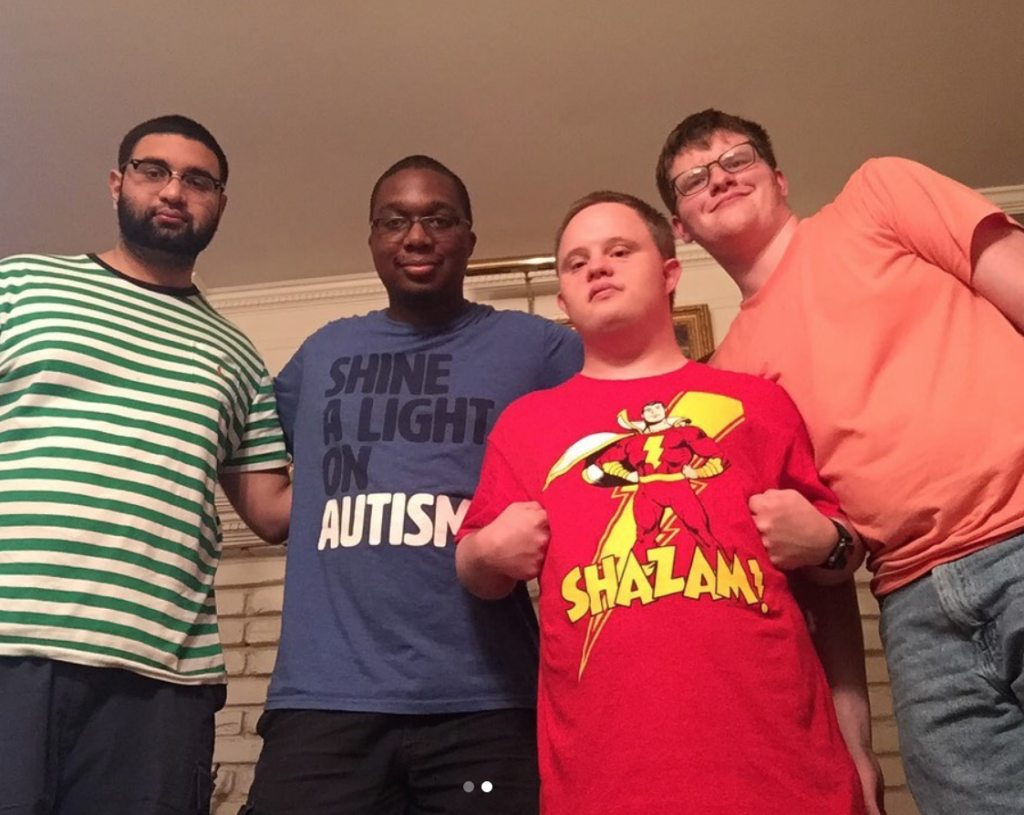
Cailin: You’ve written some amazing poems about disabilities. When I read your poems, I feel a lot of passion in your voice. What do you hope somebody thinks when they read them?
Ryan: I put my entire soul into what I write. I hope they take it to heart, and get some inspiration out of it. Take my example and just be true to themselves, and take off their masks and be themselves. And even those with autism, even though they struggle socially, just keep trying hard. And as you know, autism is a neurological disorder where it affects the ability to socialize and communicate. And also, growing up with autism, even before I knew I was diagnosed, I always knew I was different. Like, I always thought of myself as the oddball outside my peers. I always struggled to understand why I couldn’t be accepted, or why I couldn’t fit in. It was really a struggle. Every day. Mostly in middle school and high school. Mostly I was just trying to be like like everyone else, but I realized as I got older that I can’t be and think like everyone else. I just had to be me.
Cailin: When you were diagnosed with autism, was it kind of a relief, because then you knew that there wasn’t really anything wrong with you, it was just that you had a diagnosis?
Ryan: Well, no. I was diagnosed when I was three years old. In my preteens I found out I was diagnosed. It just made it harder on myself, because I knew I was different even before I was diagnosed. I try hard to be like everyone else. Try to fit in. Even though I knew I couldn’t fit in. I just try to learn that everyone’s tired of trying to fit in when you just want to be yourself. There are some autistics that aren’t really open to change, and know you have to be a certain way in order to be accepted into society. Some people feel like they need to wear a mask and hide their autism. And that’s not how it works. I mean, not in any way that’s healthy at least. If you are truly accepting to be someone’s friend, you should try to understand all aspects of that person.
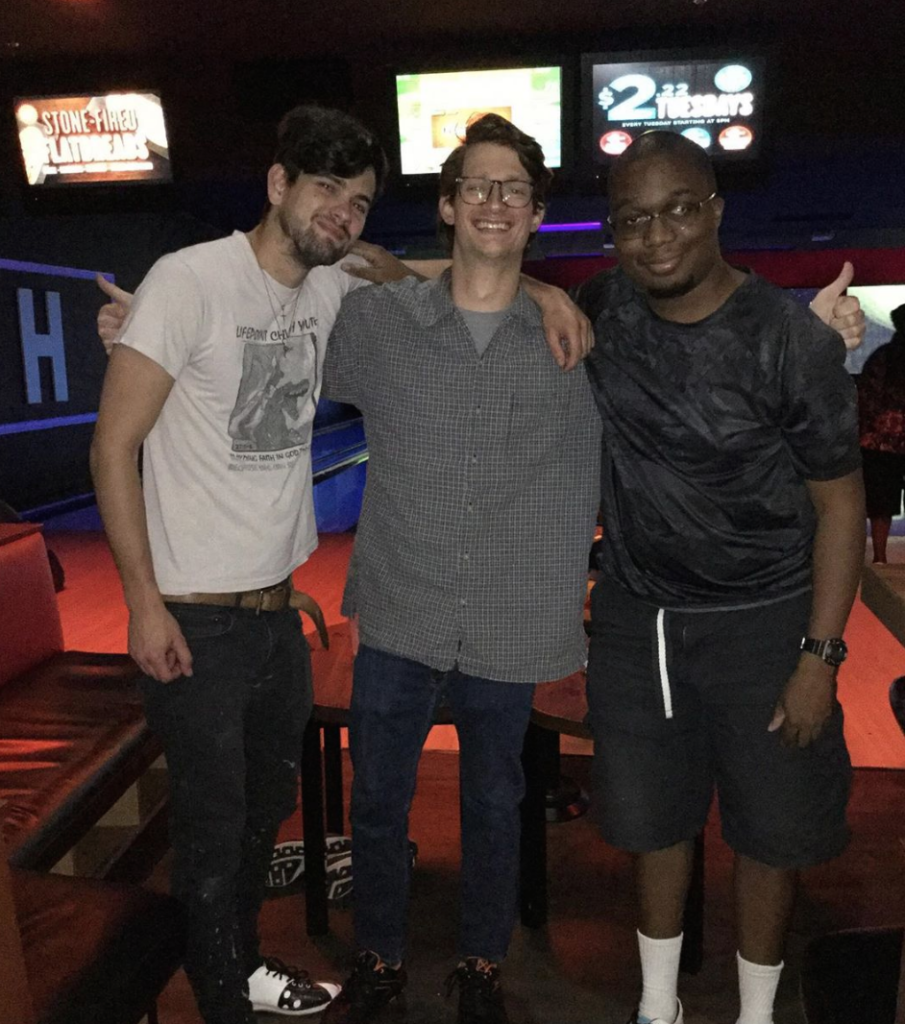
Hannah: I love how you say that normal isn’t a way to describe a person — ‘normal' is a setting on a dryer! When you say that you felt like you wanted to be like everybody else, or when somebody else says they want to be ‘like everybody else,’ what do you think that means?
Ryan: Well, I guess you want to find that niche, try to fit into that category of what everyone else likes. Or try to fit that certain interest, or be in that circle. But it can be hard because everyone has this different taste. That can be hard. I mean, I like the Disney Channel. But there are not many people my age in their 20s who do. But I still wanna just like what I like and be me. Having autism is a minute-by-minute, day-by-day struggle. For example, it may be hard for us autistics to find the right words to express what we want to say. And it can be hard for us to understand when people talk too fast. It’s important to remember that autism is autism, and people whose disability is invisible are very aware of our own difficulties, and how different each person can be. We react very negatively to others’ negative reactions. Our brains are wired differently, and people need to respect that.
Cailin: I read all of the poems you write and I think you are so talented. I want to ask you about your writing process. Do you sit down and write the whole poem at once, or do they come to you slowly over time?
Ryan: I write lyrically. I just have to find out the right words to make it make sense to people when they read it. Lyric is my style of writing. I learned that in school. It’s hard for me to not find words to make it not rhyme, because I feel like it’s an easier way.
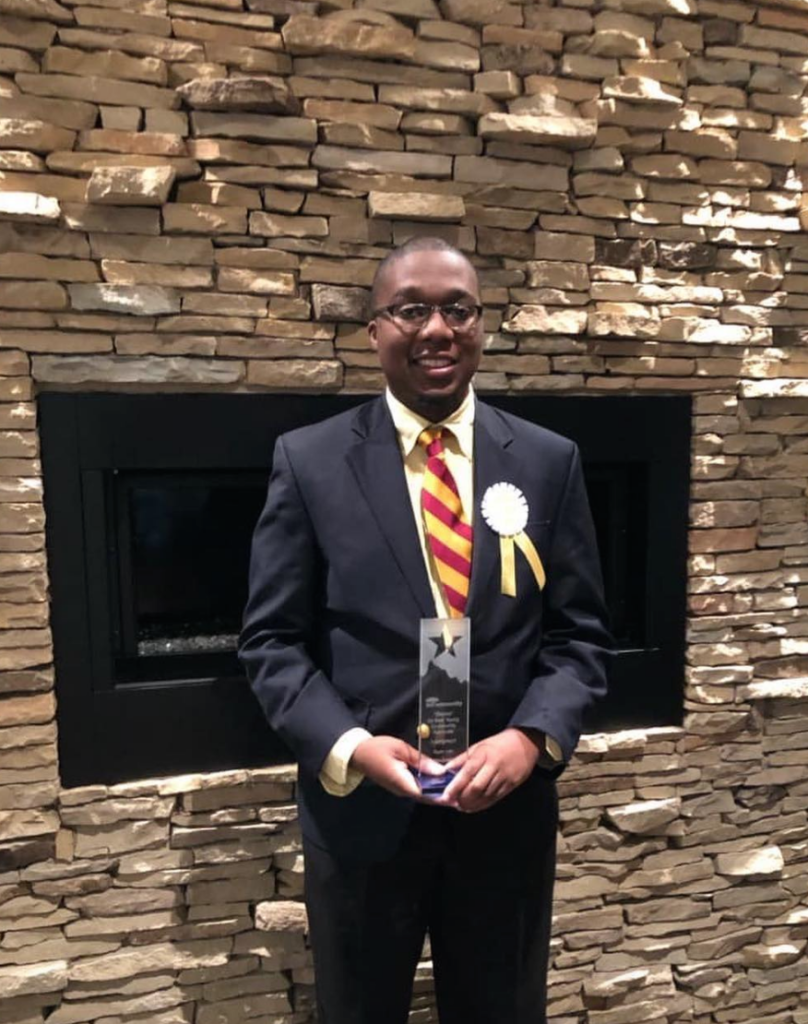
Hannah: Do you think there’s a common misconception among people about people with autism?
Ryan: Yes. Indeed, there is. One thing is, some people just don’t know what it’s like to be autistic. And they make the worst stereotypes about us. That we’re stalkers, or violent. [We] just want to be friends. And there’s also another myth. That we don’t feel empathy. We can show empathy, it just can be in a different way. We may not detect one’s emotions with their body language right away, but if only people can be more direct about how they’re feeling, then it might be much more likely for us to show empathy.
Cailin: A lot of people on SBSK say they actually look at their disabilities as a gift, in a way. Do you feel this way too?
Ryan: Well, in a way, I do. But sometimes having autism makes it hard to socially connect with people, and sometimes I have a hard time finding the words to say. I am aware of my faults, and I admit I can sometimes be impulsive, a bit aggressive when it comes to meeting new people, and sometimes I have a hard time trusting anybody. Ever since one time, when I was bullied in high school, I closed myself off, never trusting anyone again. I made a vow to never let my guard down ever, because there’s a chance I could get hurt. And I was always afraid of that. But now I’m learning to let my guard down sometimes, because there are some people who can hurt you, but I can’t be afraid my whole life. I just need to know if I put myself out there when doing SBSK, I should be able to let my guard down and take chances of getting hurt. Because it’s not going to happen all the time. I just need to be braver, and just keep on going.
Cailin: Do you think letting your guard down is a way to make friends and connect with people?
Ryan: Yes. A wise counselor told me that. He has a point — you can’t keep your guard up every time. In the way he said this, when you let your guard up, it’s like your have porcupine quills all over you. You know when a porcupine uses its quills to protect itself? He said porcupine quills are a way that keep people away, because they can see that you’re afraid, and it keeps people from really getting to know you. I understood that, because even though I am friendly, the quills are still around, even when people can’t see them. I have to let the quills down, and just open myself up a bit more.
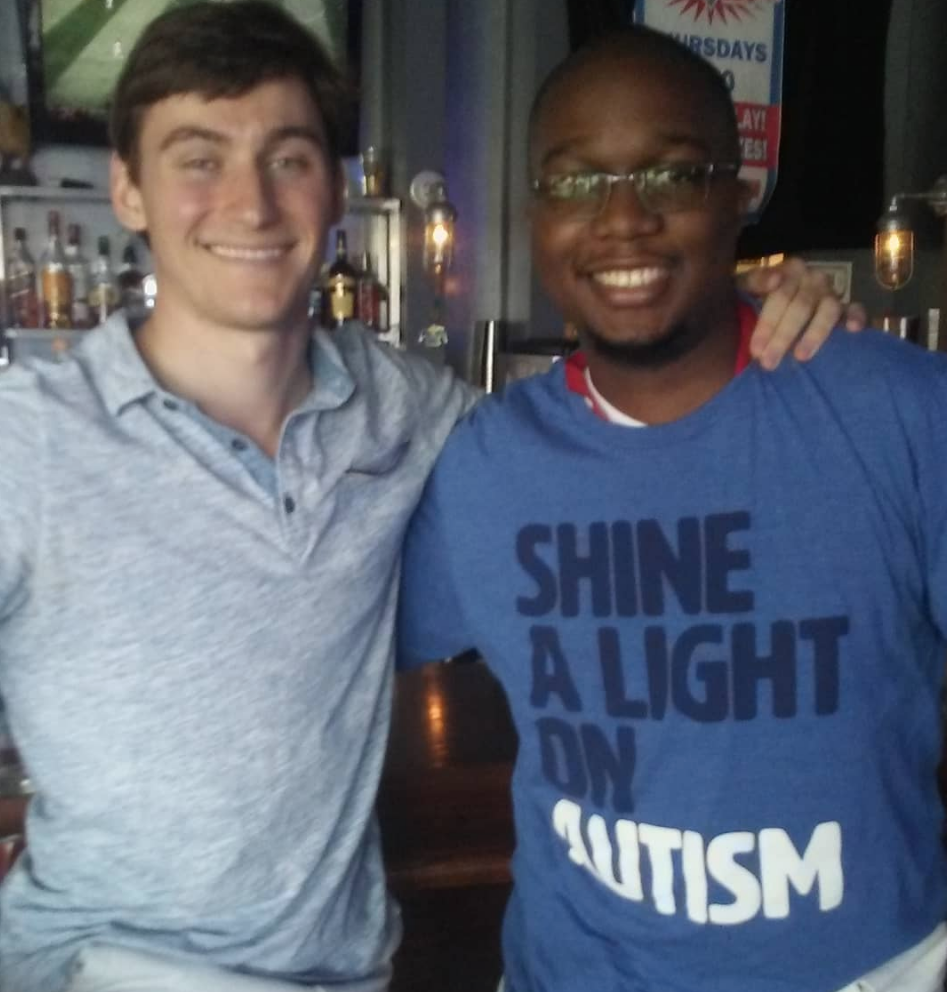
Hannah: How do you hope someone that you do know would describe you to someone who you don’t know?
Ryan: That I am smart, I am funny, that I have so much to offer, and I’m one of the best people that they know.
Cailin: How do you know when someone is a true friend?
Ryan: Well, when someone is a true friend, they accept your flaws and look past that. Having a true friend is having someone who accepts you for you, regardless of your flaws.
Cailin: I have to ask, when your video was released on SBSK, what was it like to get such a big response from people who are interested in getting to know you and hearing your story?
Ryan: I must say, it felt really good. In my junior year of high school I anchored the announcements once. I mean, it’s one thing when the whole school is watching, but when you’re being interviewed and thousands and thousands of people around the world are watching, it can be really nerve-wracking. But I wasn’t afraid. I felt like this was my chance to be heard.
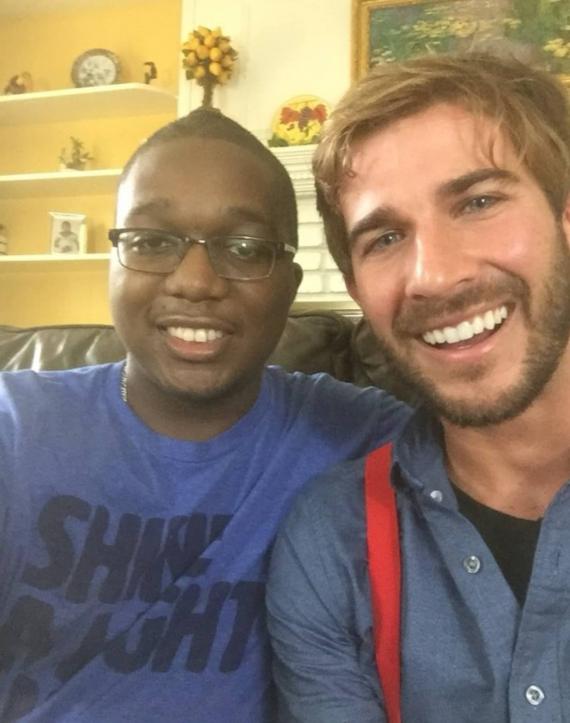
Cailin: Is it overwhelming to know that many people are watching you?
Ryan: Yeah, it can be. But you know that you’re doing it for a good purpose. And also, I got many followers on Instagram. Well, I know there are people who have more followers than me, and there are other videos on SBSK that have more views than I do.
Hannah: Doesn’t matter!
Ryan: That doesn’t really matter. All I know, I was reaching out to people. I felt like I mattered. And I got to know new people. I got to know most of my new followers. I even video chatted some of them.
Hannah: Really! What do you video chat them about?
Ryan: Well, I talk to them about having autism. And I want to get to know them more. Like, what is their favorite sport? What’s their favorite hobby? Or, what TV shows do they like to watch? I try to find something I have in common with my new followers. And that way, I feel like I’m connecting with people, even though I’m talking to them on video. I just feel like it’s a way to get to know people.
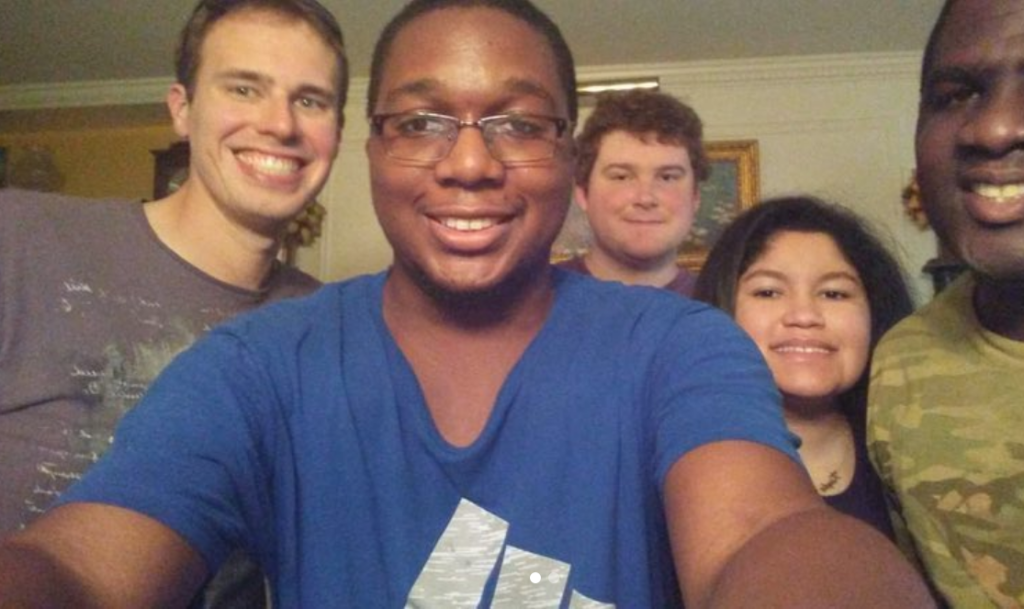
Hannah: What are your goals for the future, for yourself as a person and as an advocate?
Ryan: The goal is to make a difference for the whole autistic community. Right now I’m just going with the flow. There’s some things you should know. There are some autistics who are still mistreated because they’re different. Some are even kicked out of their social [group] after messing up when someone doesn’t even fully know them. It’s not fair to place judgement on someone when you don’t even fully know them.
Cailin: Do you think one day this could change?
Ryan: Yep. This should change. You should take time to get to know the person before you place judgement upon them. I’m in the process of starting my own social group. I call it “Mash Your Mask.” Take off your societal mask, crush it, and be true to yourself. Masking yourself puts a lot of pressure on you. I just want people to be able to be themselves.

One thought on “What It’s like to Live with Autism, as Told by Writer and Advocate Ryan Lee”